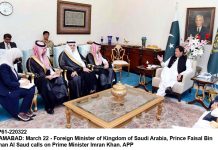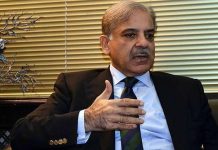Prime Minister Imran Khan Friday constituted a high-level Eco
nomic Advisory Council comprising well-respected experts, academics and practitioners to ensure that the best possible professional advice is available to the government to inform, optimise and synergise the formulation and implementation of its eco
nomic and financial policies.
The council will be chaired by the prime minister himself.
On the recommendations of the Ministry of Finance, the prime minister has approved the following private sector members for the Eco
nomic Advisory Council: Dr Farrukh Iqbal, Dean Institute of Business Administration (IBA); Dr Ashfaque Hassan Khan, Principal School of Social Sciences and Humanities, Nationa
l Univer
sity of Sciences & Technology (NUST); Dr Ijaz Nabi, Chairman Consortium for Development Policy Research and former professor and Dean Lahore Univer
sity of Management Sciences (LUMS); Dr Abid Qaiyum Suleri, Executive Director Sustainable Development Policy Institute (SDPI); Dr Asad Zaman, Vice Chancellor of Pakistan Institute of Development Economics (PIDE); Dr Naved Hamid, Professor of Economics at Lahore School of Economics (LSE); Syed Salim Raza, former governor of State Bank of Pakistan, Sakib Sherani, economist, Dr Atif R Mian, Professor of Economics and Public Affairs at Princeton U
niversity (Department of Economics and Woodrow Wilson School of Public Policy); Dr Asim Ijaz Khawaja, Professor of International Finance and Development at Harvard Kennedy School; Dr Imran Rasul, Professor of Economics, Department of Economics, U
niversity College, London.
In addition to private sector members, the following will be the official members of the Eco
nomic Advisory Council: Minister for Finance, Revenue and Eco
nomic Affairs, Minister for Planning Development and Reforms Division, Deputy Chairman, Planning Commission, Governor, State Bank of Pakistan, Adviser on Institutional Reforms, Adviser on Commerce and Secretary Finance Division (Secretary of the Council).
The Eco
nomic Advisory Council will meet at least once a month and its mandate will be to advise the government on both short-term macroeco
nomic stabilisation interventions and long-term structural reforms for stable and sustained eco
nomic development, according to a statement issued by the PM Office on Saturday. The council is expected to play a pivotal role in strengthening the capacity of the government to design and introduce sound and effective policies for rapid and continued social and eco
nomic advancement, human resource development, improvement of business processes, and strengthening of data services.
The Eco
nomic Advisory Council will also facilitate capacity building of the government in conducting policy analysis and will assist in reaching out to the international network of recognised economists to contribute to Pakistan’s development.
The Ministry of Finance will be the nodal government a
gency for the Eco
nomic Advisory Council, which will function in an entirely non-partisan manner and is expected to strengthen existing state institutions in a collaborative and concerted manner. The ultimate goal of the council is to promote analytically sound and evidence-based reforms and initiatives for the progress and development of Pakistan, concluded the statement.
Published in Daily Times, September 2nd 2018.











